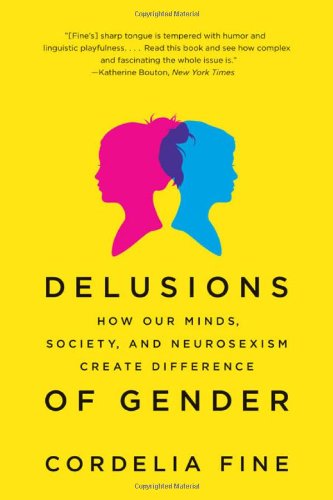☆
☆Luna☆
Guest
So, heads up, I'm going to make a lot of obvious statements for the sake of presenting this, just roll with it.
So, it was during sociology that I got to read a cute little story about a child whose sex was concealed from everyone (literally not even the doctors and parents knew). I'm not going to go into detail, but basically the kid is raised without being taught gender specific behavior, society flips shit.
It kinda made me able to verbalize something fairly obvious in the form of an logical framework.
Just to make my first statement ironclad, logical math.
Premise 1: Some people (want to) find gender performance important. +P+G
Premise 2: Gender performance intends to identify a person's sex on sight. -G+S
Conclusion: Some people want to identify a person's sex on sight. +P+S
To identify a person's sex some people want to. +S+P
So, if the reason gender performance is important is because of the belief of some people is that they need to know the sex of any given person just by looking, then doesn't that imply that people cannot tell what sex someone is without these clues? Gender roles can avoid getting into awkward situations where you find yourself attracted to someone to whom you might not necessarily be able to be sexually attracted to.
So unless you feel I've made a logical error, I have an interesting set of questions to think about: does this arrangement reinforce heteronormativity, does this explain some of the disgust and anger directed toward LGTB individuals, and how would you feel if for some reason nobody could distinguish anyone's gender just by looking for a week?
So, it was during sociology that I got to read a cute little story about a child whose sex was concealed from everyone (literally not even the doctors and parents knew). I'm not going to go into detail, but basically the kid is raised without being taught gender specific behavior, society flips shit.
It kinda made me able to verbalize something fairly obvious in the form of an logical framework.
Just to make my first statement ironclad, logical math.
Premise 1: Some people (want to) find gender performance important. +P+G
Premise 2: Gender performance intends to identify a person's sex on sight. -G+S
Conclusion: Some people want to identify a person's sex on sight. +P+S
So, if the reason gender performance is important is because of the belief of some people is that they need to know the sex of any given person just by looking, then doesn't that imply that people cannot tell what sex someone is without these clues? Gender roles can avoid getting into awkward situations where you find yourself attracted to someone to whom you might not necessarily be able to be sexually attracted to.
So unless you feel I've made a logical error, I have an interesting set of questions to think about: does this arrangement reinforce heteronormativity, does this explain some of the disgust and anger directed toward LGTB individuals, and how would you feel if for some reason nobody could distinguish anyone's gender just by looking for a week?







